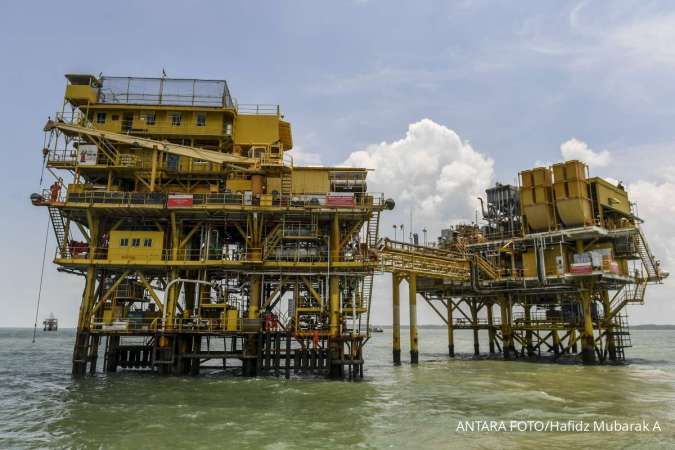News
Government's Strategies to Improve Upstream Oil and Gas
WINDONESIA June 13, 2024 Pertamina Hulu Kalimantan Timur's oil platform in the Yakin Field Southern Operating Region. (ANTARA/Hafidz Mubarak A).
Pertamina Hulu Kalimantan Timur's oil platform in the Yakin Field Southern Operating Region. (ANTARA/Hafidz Mubarak A).
The Indonesian government, through the Energy and Mineral Resources (ESDM) Ministry, is optimistic about the revitalization of national upstream oil and gas activities. This optimism is driven by improvements to exploration and exploitation incentive policies that has been implemented since 2021.
Additionally, the presence of supporting regulations, which are being finalized, is expected to further boost upstream oil and gas activities. ESDM Upstream Oil and Gas Business Development Director Ariana Soemanto stated that the future oil and gas investment climate will be increasingly enthusiastic, particularly in natural gas as part of the energy transition.
"The last giant oil discovery in the Cepu Block was in the early 2000s. However, for natural gas, there have been significant discoveries in the last two years, notably in the South Andaman Block, Andaman II Block, and North Ganal Block. The Energy and Mineral Resources Ministry has enhanced upstream oil and gas policies and incentives to encourage more exploration. Additionally, new policies are being developed," said Ariana in a press release on Jun. 11, 2024.
Over the past three years, at least three major policies have made oil and gas activities more attractive. First, improved auction provisions as well as Oil and Gas Block contracts This policy includes contractor splits that can reach 50 percent, minimum signature bonuses, direct bidding auctions for oil and gas blocks without joint studies, reduced bank guarantees, and flexible contract types (gross split or cost recovery).
"Proof of the success of these policy improvements is the acquisition of 21 new oil and gas blocks since the enhancements began in 2021. This number surpasses the period before the policy's implementation. Currently, the ESDM Ministry is reviewing over 50 oil and gas blocks for future auctions," Ariana noted.
Second, exploration privilege policy. Contractors can shift exploration activity commitments to open areas outside their current blocks.
"Additionally, the exploration period is extended to 10 years, with the possibility of further extensions beyond 10 years. Without this policy, the North Ganal gas discovery might not have occurred," Ariana explained .
Third, upstream oil and gas incentive policy. Under the ESDM Minister Decree No. 199/2021, this policy aims to enhance contractor economics through improved splits, investment credits, accelerated depreciation, and other economic parameter adjustments.
The new policy being finalized is the New Gross Split Production Sharing Contract Policy, which will be regulated by the ESDM Ministry. This policy aims to simplify contract parameters from 13 variables to 5, making it more implementable and ensuring more attractive splits. Additionally, there will be an extra split for non-conventional oil and gas, providing a significant stimulus for MNK activities.
Other policies under discussion include the revision of Government Regulation Number 27/2017 and Government Regulation 53/2017, which relate to the tax treatment of upstream oil and gas activities.

